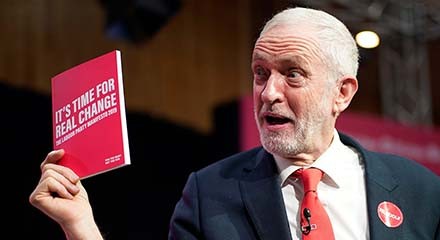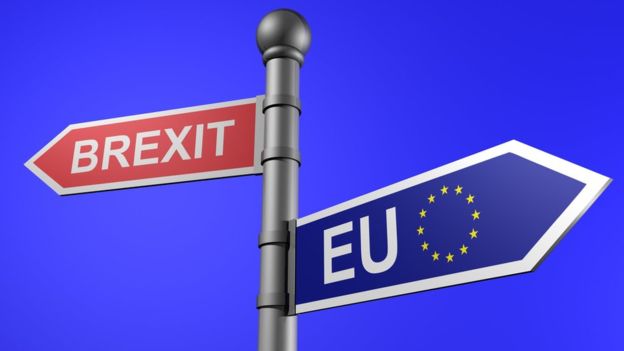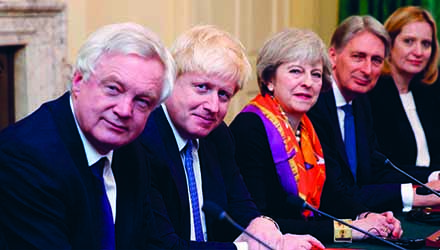Win or lose the general election, the fight to transform Labour will continue, writes Peter Manson (first published in the Weekly Worker)
It is clear that Labour’s manifesto for the December 12 general election is considerably more radical than its 2017 programme, For the many, not the few. While that phrase appears in small letters on the front of the new version, the title this time, however, is rather more bland: It’s time for real change could in truth be used by just about any party.
While ‘capitalism’ is not mentioned at all and ‘socialism’ only once – in the claim that the national health service is an example of “socialism in action” (p31) – the notion of class at least makes an appearance, as opposed to being merely implied in the title of the 2017 manifesto. However, while Labour says it will “put class at the heart of Britain’s equality agenda” (p66), that obviously implies the “equality” of all classes within the current order.
Nevertheless, the claim that the party will be “shifting the balance of power back towards workers” through “the biggest extension of workers’ rights in history” (p60) is, of course, welcome (if not a little exaggerated), as is the declaration that “Strong trade unions are the best and most effective way to enforce rights at work” (p63). Labour pledges to “repeal anti-trade union legislation, including the Trade Union Act 2016” (p62) – note that the word ‘all’ is missing, although at least this statement implies that perhaps it is not only the 2016 act that will be repealed.
Another key word that also features is ‘imperialist’, but only in the context of the UK’s previous foreign adventures, which resulted from “outdated notions of charity or imperialist rule” (my emphasis, p103). Similarly the manifesto promises to “conduct an audit of the impact of Britain’s colonial legacy” (p96) – in other words, imperialism, like colonialism, is merely a regrettable feature of British history.
True, Labour will “end the ‘bomb first, talk later’ approach” to foreign policy (p95), but it is committed to “protect our security at home and abroad” (p8). And that means we must “maintain our commitment to Nato”, not to mention “the renewal of the Trident nuclear deterrent” (p101). In fact, “Labour’s commitment to spend at least 2% of GDP on defence will guarantee that our armed forces are versatile and capable of fulfilling the full range of roles and obligations.” Well, at least under Labour we will ‘talk first and bomb later’, even if it means the obliteration of an entire population, thanks to nuclear weaponry.
Would you believe it? – the manifesto implies that Labour can be regarded as more reliable on ‘defence’ than the Conservatives, under whom “Trained army personnel have been cut from 102,000 to just over 74,000” (p100). Similarly Labour will “restore total prison officer numbers to 2010 levels” (p46). However, the commitment to the armed forces is totally in line with Labour’s vision for a ‘new’ global order, whereby it will “use Britain’s influence within the World Bank, IMF and WTO to transform the rules of the global economy, so they work for the many” (p101). It is difficult to imagine a more naive ‘socialist’ illusion than this commitment to a ‘fairer’ form of global capitalism.
Spending
There are several positive pro-worker commitments, such as the banning of zero-hour contracts, and the pledge that “Within a decade we will reduce average full-time weekly working hours to 32 across the economy, with no loss of pay” (p62) – although the promise to “rapidly introduce a Real Living Wage of at least £10 per hour for all workers aged 16 and over” (p59) falls far short of what is now needed.
Then we have the entirely supportable policies relating to state ownership of essential public services. Gas, electricity, water, the railways and Royal Mail are all to be renationalised, and Labour will also take over BT’s internet division, in order to provide free broadband to every household, in addition to “taking public ownership of bus networks” (p19). It is claimed that all this will help “make Britain’s public services the best and most extensive in the world” (p29).
When it comes to the NHS, Labour will be “taking back all PFI contracts over time” (p30) and in general it will “end and reverse privatisation” (p32). What is more, while it does not go into detail, it will “establish a generic drug company” (p35) – presumably as an integral part of the NHS, in order to ensure that healthcare is no longer the victim of the private drug companies’ blatant robbery through their monopolistic overcharging. Labour will also “abolish prescription charges” (p35).
Then there is education, with “free school meals for all primary school children” (p40) and the pledge to “abolish tuition fees and bring back maintenance grants” for further education (p41). In relation to housing, the party has committed to building at “an annual rate of at least 150,000 council and social homes, with 100,000 of these built by councils for social rent” (p78). Labour also claims it will “end rough sleeping within five years” (p80).
However, taxation of the rich and big business is not to be increased by a huge amount: “We will reverse some of the Tories’ cuts to corporation tax, while keeping rates lower than in 2010” (p29). Which means that much of the increased spending will have to be financed by borrowing.
This, of course, has opened the way for the usual charges of an irresponsible failure to balance the books. However, it is hardly unusual for bourgeois states to raise funds through borrowing. In fact, depending on the overall political and economic situation, it is considered perfectly normal to do so – the aim, particularly during a downturn, being to boost the market and thus increase production (and therefore income from taxation). It is ironic that, at the very time the usual charges of irresponsibility were being levelled against Labour, the newly appointed president of the European Central Bank, Christine Lagarde, was calling on EU governments to raise their spending in order to stimulate the economy.
Democracy
In line with others, Labour is now committed to “reducing the voting age to 16” (p82) – good. But what about its attitude to the second chamber? It states: “We will act immediately to end the hereditary principle in the House of Lords, and work to abolish the House of Lords in favour of Labour’s preferred option of an elected Senate of the Nations and Regions” (p81).
Well, first of all, the abolition of the Lords is an absolutely fundamental requirement, so why the delay? What is this “work” that needs to be done before it can be entertained? And in the meantime the existing members – including those who are there as a result of the “hereditary principle” – will continue as before. All those who say they are democrats must oppose not just the current monstrosity, but any second chamber – whose purpose is to impose ‘checks and balances’ against the democracy of directly elected representatives.
However, while it is all very well to state your opposition to the “hereditary principle” in relation to the Lords, aren’t they overlooking something? What about the monarchy, which does not get a mention in the manifesto? This is the biggest affront to democracy of all. Every piece of legislation requires the monarch’s assent – and there is no doubt that they would actually exercise that power of veto in the event of a genuine threat to the ruling class being posed by the elected parliament.
And, of course, as we have pointed out on numerous occasions, it is the monarch who formally appoints the prime minister, and there is a distinct possibility that, if Labour were to be the largest party after December 12, the queen would summon someone other than Jeremy Corbyn to the palace to head ‘her’ government (no doubt with the acquiescence of sections of the Labour right). The principled position is clear: abolish the monarchy, abolish the second chamber!
Then there is Scotland. The manifesto states:
Scotland needs the transformative investment coming from a Labour government, not another referendum and not independence. A UK Labour government will focus on tackling the climate emergency, ending austerity and cuts, and getting Brexit sorted. That’s why in the early years of a UK Labour government we will not agree to a section 30 order request [for a second independence referendum] if it comes from the Scottish government (p85).
While communists are opposed to separatism in principle, and call for the greatest possible unity between different nations and peoples, we are adamant that such unity must be entirely voluntary. There must be self-determination and, if the democratically elected representatives vote for independence, that decision must be accepted, however much we may regret it. In other words, it should not be up to the “UK government” (quite apart from the fact that we are for the replacement of the United Kingdom by a federal republic, in which Scotland and Wales would have the right to secede) to decide this question.
European Union
Labour’s official position on Brexit is spelled out, making it entirely clear that the party is for Brino (Brexit in name only). After the UK leaves the EU following a deal negotiated by Corbyn, it would remain part of both the customs union and the single market – not to mention the fact that there would be “continued participation in EU agencies and funding programmes” (p90).
In other words, just about everything would continue as before – except that the UK would no longer take part in EU decision-making. Of course, it goes without saying that the overwhelming majority of Labour MPs, and of the active membership, would oppose withdrawal and campaign for ‘remain’ in the second referendum proposed by the party.
However, the manifesto states:
If in a referendum the British people decide to remain in the EU, this must not mean accepting the status quo. Labour will work with partners across Europe to make the case for radical reform of the EU – in particular to ensure that its collective strength is focused on tackling the climate emergency, tax evasion and ending austerity and inequality (pp91-92).
Thus the same illusion as in relation to capital’s global institutions is displayed. There is no notion of the need to fight for the transformation of the current EU into a workers’ Europe – once again it is a case of a more ‘progressive’ form of capitalism.
Then there is the problem of the leader’s position in the event of a second referendum, where we would be asked to choose between the Corbyn deal and ‘remain’. The Labour leader only – not the party – would stay “neutral” during that campaign – although, as he stated on the BBC’s November 26 The Andrew Neil interviews, he hoped that some “people would argue it’s a reasonable deal” that should be accepted.
While it is fine in some circumstances for a leader to stand aside from the choice between two acceptable alternatives, in this case, as many have pointed out, it would be problematic – the choice in practice would be between remaining within the EU with or without a vote: who in their right mind would vote for the latter?
The manifesto makes several positive points about the right of free movement – and not just in relation to the EU. It states: “Labour recognises the huge benefits of immigration to our country” (p91) and continues: “The movement of people around the world has enriched our society, our economy and our culture” (p70).
Therefore, “We will end indefinite detention, review the alternatives to the inhumane conditions of detention centres, and close Yarl’s Wood and Brook House” (p71). So it appears that ‘non-indefinite’ detention centres – with more ‘humane’ conditions – will remain open. In fact, Labour’s policy will be to “review our border controls to make them more effective” (p45). What was that about free movement?
Anti-Semitism
Rather strangely, in view of the ongoing smear campaign being waged against Labour for failing to ‘root out’ its ‘institutional anti-Semitism’, there is no mention of anti-Jewish prejudice in the manifesto. The substantial section on ‘Women and equalities’ makes clear the party’s opposition to all forms of racial and religious discrimination, but neither ‘anti-Semitism’ nor ‘Jews’ is specified – an absence that has not been pointed out by any mainstream media outlet, as far as I know.
On one level that omission is fair enough, but, in view of the absurd allegations levelled against the party under Corbyn’s leadership on precisely this question, surely it would have been worthwhile not only to mention anti-Semitism, but to make a clear statement condemning the totally false slurs and explaining what lies behind them. But, no, Labour’s position has been to say as little as possible on those slurs – apart from repeating ad nauseum its total opposition to all forms of prejudice and its absolute intolerance of such prejudice within the party.
Of course, the idea has been to keep quiet about it, in the hope it will go away, and, instead of tackling such controversial matters head on, concentrate on issues like workers’ rights and public ownership. But the hope that the whole thing would die a death if you ignore it was totally misplaced – the anti-Corbyn establishment is not going to drop something that has him continually on the back foot. And it was only a matter of time before Labour’s alleged ‘anti-Semitism’ would feature in the general election campaign.
And now we have the latest furore – sparked by the statement of chief rabbi Ephraim Mirvis that Corbyn is “unfit for high office”, as he had allowed the “poison” of anti-Semitism to “take root in the Labour Party”. Just for good measure, Mirvis was supported by the Archbishop of Canterbury, Justin Welby.
On The Andrew Neil interviews Corbyn once more failed to condemn the malevolent campaign of slurs. All he would say was that he was “looking forward to having a conversation” with Mirvis, so he could clear up the misunderstanding, since only “a small number of members” have been accused of anti-Semitism. He politely disagreed that he had been guilty of “mendacious lies” about its extent in the party and, after all, he had now “toughened up the rules” to prevent it.
Not only is Corbyn’s failure to oppose the campaign misplaced: it could well cost him the election. Of course, as in 2017, he could still head a pro-Labour surge, but this is now looking increasingly unlikely.
Nevertheless, we must be clear: the place for all Marxists and socialists is within Labour, aiding the long-term struggle to defeat the pro-capitalist right and transform it into a genuine party of the entire working class.



